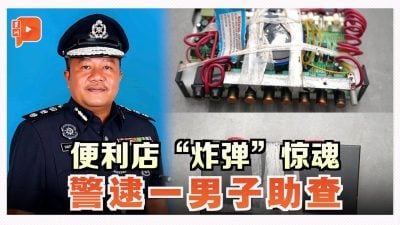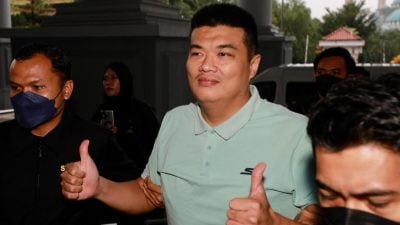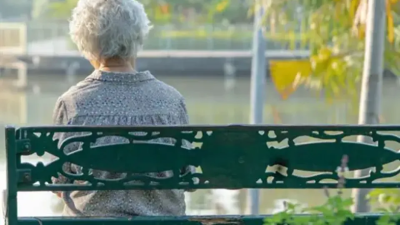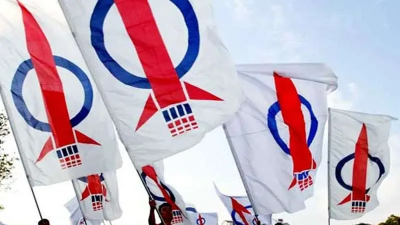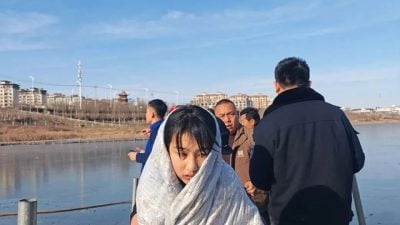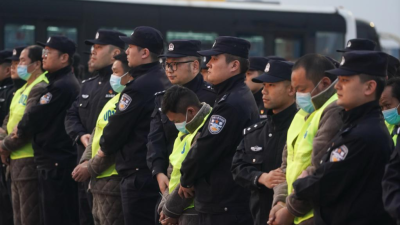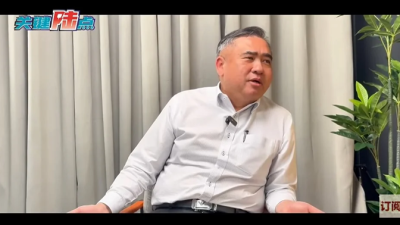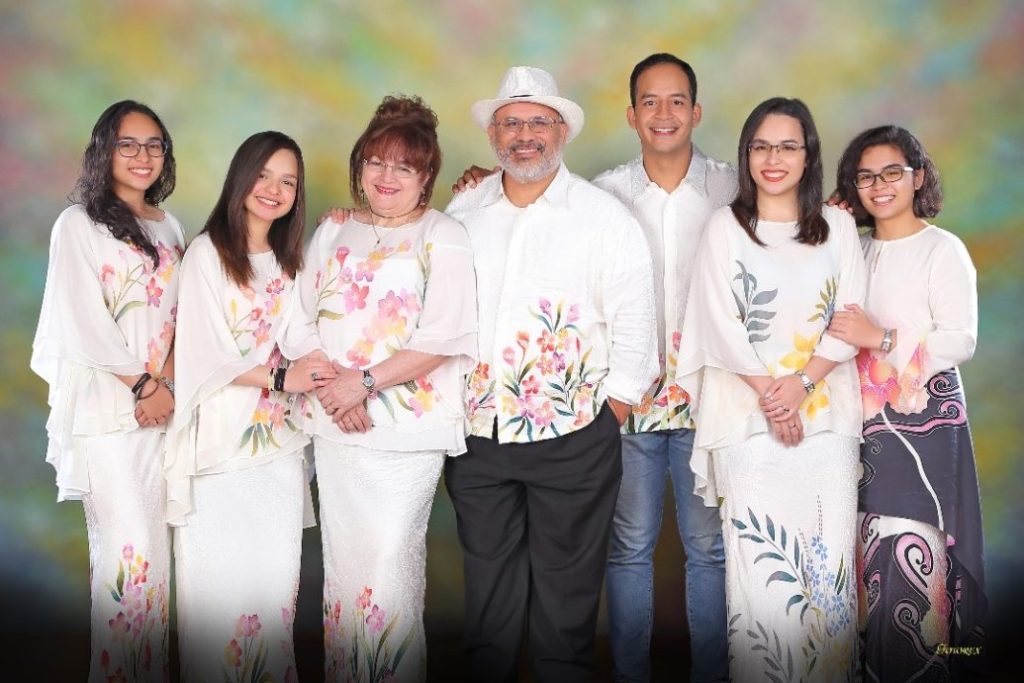
While most people express patriotism through flags, food, multiculturalism, or songs, this family has chosen a unique way—by naming their children to reflect their love for the nation.
Merdeka, Malaysia, and Mayday are three sisters, they are children of a Malaysian–Venezuelan couple.
Their mother Tun Kamalu Victoria Zaman told Sin Chew Daily that her third daughter was named Malaysia, inspired by a travel poster featuring the Shah Alam Mosque.
Her full name is Tun Malaysia Venecia—“Venecia” being the Latin name for Little Venezuela, she said.
“Merdeka” was inspired by a visit to the National Museum, where they watched a documentary of Tunku Abdul Rahman shouting “Merdeka” seven times during independence.
Her English name is spelled Mardeka instead of Merdeka because the mother wanted all her children’s names to begin with “MA,” so she changed the “e” to an “a.”
Her full name is Tun Mardeka Victoria, symbolising independence and victory.
“Mayday” was named after a book titled Mayday, about an American spy fighter plane that crashed in the Soviet Union during the Cold War.
“When my husband was reading this book, our daughter was born, and the name also started with ‘MA’ in its pinyin form.”
Their other two children are named Abdul and Maria, both with special meanings.
Victoria explained that her eldest son, Tun Abdul Luis, was named after his grandfather Abdul Zaman, a police officer who defended the nation during the Malayan Emergency and the Malaysia–Indonesia Confrontation.
“Maria’s name was taken from my great-grandmother and grandmother, both of whose names began with ‘MA,” she said.
Tun Malaysia Venecia faces challenges growing up due to her unique name.
She first realised her name was unusual in kindergarten. Every time her name was called, it would trigger laughter.
“At first, I thought they were just joking, but later I was bullied frequently at school. I even questioned my parents about why they chose this name. But now, I’ve not only accepted it—I also enjoy the benefits and fun that come with it,” said Tun Malaysia Venecia.
Now, her name has become an icebreaker at work.
“Every time I introduce myself, people find it unbelievable,” she said.
Her work email is often mistaken for the general corporate address of a Malaysia branch.
“In the era of the slogan ‘Malaysia Boleh’ (‘Malaysia Can!’), whenever someone shouted it at me, I’d laugh and reply: ‘Of course I can… but can you?’”
She admitted that the name “Malaysia” has shaped part of her identity.
“But not entirely—because I am still myself, regardless of my name.”
As for Merdeka, she feels proud of her name.
“Merdeka” too was mocked because of her name. Some people would imitate Tunku Abdul Rahman shouting “Merdeka” in front of her.
“At first, it didn’t feel good, it felt like bullying, but as I grew older, I learned to accept it,” she said.
Once, she fired back at a teaser: “You want independence and freedom? Then you’ll have to come to me,” she said.
When she returned to Malaysia, her name drew public attention.
She feared being recognised in public and felt she had to maintain a certain image to avoid negative reactions.
“But don’t get me wrong—I am still proud of my name. It’s just that it also carries expectations I never asked for,” she said.
Compared to her two other sisters, Mayday has fewer challenges.
“Mostly, many people—especially children—don’t know what ‘Mayday’ means. At most, they just shout ‘Mayday! Mayday! Mayday!’ It never really bothered me, even though they were trying to ‘tease’ me.”
Now, her name has become a source of pride. She said that in a multicultural environment, open-mindedness is the most important thing.
“Just like our family—an open mind allows Malaysian and Venezuelan cultures to coexist in our home.”
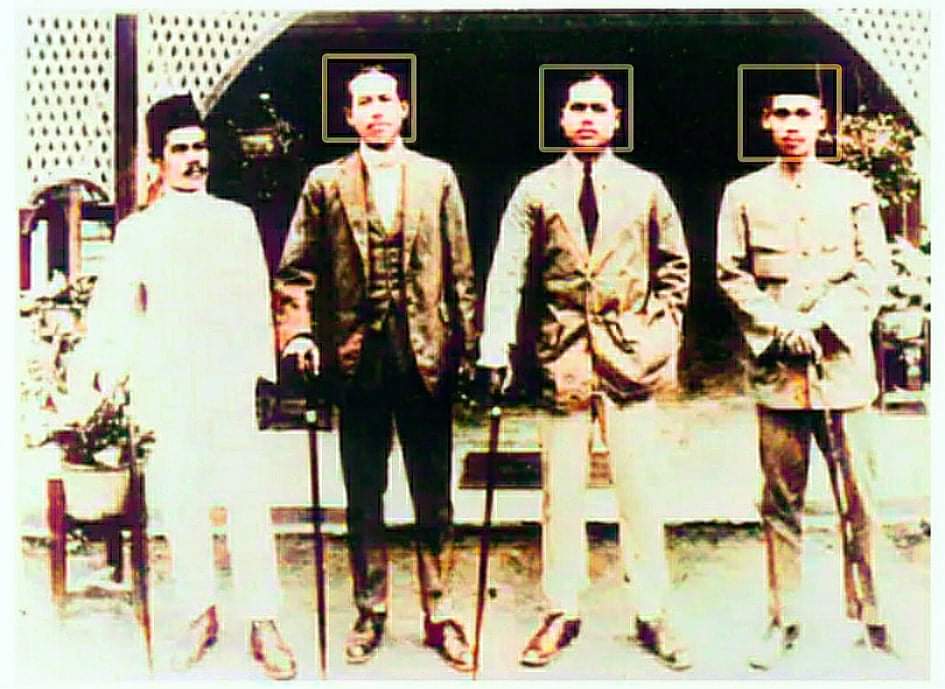
Their father, Tun Kamalul Zaman, is a descendant of Perak’s first Menteri Besar, Megat Terawis.
He said each child’s name carries important meaning and origins, linked to family, history and significant events.
He stressed: “Malaysia is our home, our shared responsibility, and our honour.
“We do not want politicians to divide us. We do not want religious fanatics spreading hatred among us. We despise politicians who stir up emotions over trivial matters such as the national flag.
“We want a clean and incorruptible Malaysia, where everyone is equal. We hope Malaysians will not shout ‘Go back to your homeland,’ because this country is the homeland of all of us,’’ he said.
ADVERTISEMENT
ADVERTISEMENT









